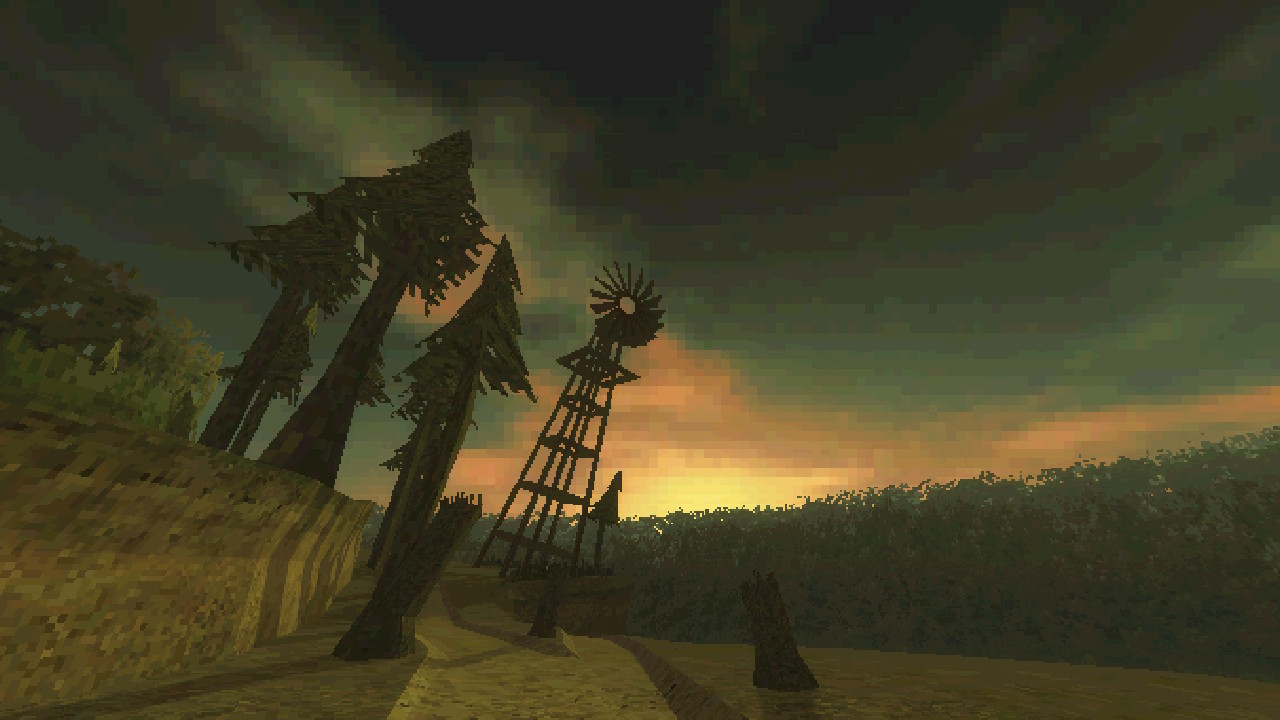Horror’s best quality is that it doesn’t have to make sense to be scary.
This is the lynchpin behind some of the greatest works of horror fiction: humanity comes in contact with the incomprehensible and somehow manages to escape and live long enough to tell the tale. Yet mostly, the form does not match the function. Horror fiction is told in much the same way as many other types of stories: You meet the characters, there is a slow buildup to the terrifying action, then a climax and a resolution. There’s nothing wrong with this, it just starts to get predictable after a while.
Many, many horror games live in this space. You meet your characters and establish the setting, then the horror escalates (usually as you complete concrete progression tasks like picking up keys or loose sheets of paper with bad 2000s emo poetry on them). Finally, there is a climax, and a resolution. It’s rare to play a game where the frame of the story is as questionable as the horror we’re supposed to be running from/toward.

Paratopic is a 2018 game from Arbitrary Metric, a studio consisting of Jessica Harvey and Lazzie Brown, with assistance from Doc Burford. It just came out on the Nintendo Switch thanks to port work from Baltoro Games. Let me tell you about my first playthrough.
I’m sitting in a hallway. Someone – a customs agent, maybe, or just a regular old cop – is harassing me. I ask to speak to my lawyer. They try getting me to tell them about some tapes I was found with. I ask again to speak to my lawyer. You don’t talk to cops without a lawyer present. They walk down the hall and into a room. Some light flashes, and I hear screaming, then I’m in a diner. I can pick up a gun or a camera, so I pick up the gun. Then I’m sitting across from a man with a shifting face. Then I’m in my dilapidated apartment. Then I’m driving. Then I’m in the woods.
This is where part of the horror of Paratopic is derived. By shifting me from scene to bewildering scene with little to no explanation of what I’m doing, the game lets my imagination run wild with its own possibilities. What could I be doing smuggling tapes? It’s never explained. Why am I in the forest, chasing a pink sparrow? It’s never explained. Who is the man with the shifting face? It’s never explained. And why should it be? I haven’t been here long enough to be worthy of an explanation. The game builds its moments of tension by alternating the abruptness of the scene changes with long, drawn out moments of driving down a highway in twilight, with nothing but the radio to keep us company.
And when the game ends, it’s time to play again. Maybe more of the mystery will be revealed, maybe not. It’s really not up to us. Make good choices, I guess.

Look, it’s cliche as hell to call something “Lynchian,” I know, but in playing this game I’m reminded not of anything specific David Lynch has made but of his interviews with press.
“Eraserhead is actually my most spiritual film.”
“Really? Can you elaborate on that?”
“No.”
That is Paratopic to me, at least at the end of my first playthrough. There’s also a sense of “fuck around, find out” there, where maybe I shouldn’t spend more time finding out every little secret, because what I actually end up discovering might be too terrible to behold. It’s delightful to have a game I can spend a short time in per session and be so thoroughly challenged by in terms of form and function.
Give it a whirl. It’s on the Switch eShop.
It’s a genuine pleasure to have you here reading our work. Please consider donating to Black Lives Matter, the NAACP and other local organizations doing anti-racist and anti-police brutality work. If you enjoy the site, follow us on Twitter. If you’d like to read a bunch of work like this, you can check out this book-esque object over at itch.io and the Apple Books store!
Additionally, we now have a Patreon (again) and a Substack newsletter you can sign up for. Doing so supports the site and helps us reach our goal of being able to pay other people to come say hi sometimes.
